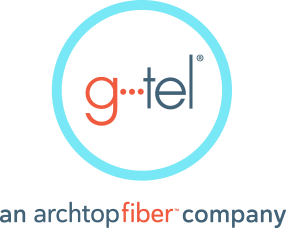Telephone Requirements
Learn more about the fundamentals behind GTel Telephone Service
GTel serves what is considered a high-cost area due to low population density. That means there are very few people living within each square mile. As a result, there are fewer people to buy services, which makes serving rural areas, like ours, very expensive.
Because of these challenges, companies like GTel receive government funding to help us serve and maintain these high-cost areas – areas which “the big guys” don’t want to serve. At this time, the funding is tied to the phone lines, so we receive that funding for every customer who has an active phone line. Without this funding, GTel’s cost to provide customers with service would be substantially higher, causing customer prices for our Internet service to be substantially higher.
That’s why we, and many other small, rural companies across the country, must still require customers to have a phone line with Internet service.
Due to our membership and relationship with NECA (National Exchange Carrier Association Inc.), the organization which helps us manage the FCC rules and regulations, we don’t have the option to provide customers in our ILEC (Independent Local Exchange Company) territory with Internet only services. For more on NECA, visit www.neca.org. For more about our ILEC status, see our FAQ section below.
We realize that customers have other options for Internet in our area – wireless and/or satellite services – but our fiber network and local service and support will provide customers with the most reliable and satisfying customer experience in our local market.
Why keep a landline?
You may not know why you want a landline, so we’ve highlighted our top three reasons to keep your landline and actually use it!
- 911 Emergency Services – Cell phones use GPS-based methods to report your location, which means your signal could be transmitting to whatever tower you may be near. When an emergency happens, this can cause emergency dispatchers much longer to locate you if you can’t tell them exactly where you are. The location of your device also only reports a general location rather than a specific address. Your home phone number is directly tied to your address, including apartment numbers or stops on long driveways. We update the 911 data base every day to ensure your phone number can tell emergency responders where you are, giving you peace of mind and very valuable seconds when you need them most.
- Quality – Many choose to go with wireless or Internet based voice options to save a few bucks. But these methods of delivery can cause static, delivery delays and lots of frustration. Plus, landlines are direct connections, so whether you’re in a basement or a fully metal building you can have a complete conversation without fear of dropping that call you’ve been waiting to make.
- Security Savings – Many home-owners are choosing to protect their property with fully monitored security systems and alarms. For providers like ADT, a security system with a landline connection can make the installation and monitoring easier and cheaper for the one paying the bills.
F.A.Q.
Learn more about GTel billing, fees, and regulations.
How much does a basic telephone service cost?
Basic residential telephone service starts at only $23 per month. This includes unlimited local calling, both incoming and outgoing. Plus, you can customize your service with any of our customer calling features.
Why do I have to have a phone with my Internet and others don't?
GTel serves two distinct territories in our area. If you live in the territory that is covered by our ILEC regulations, we do require you to carry an active phone service with your Internet. Those residing in the areas outside of our ILEC territory, our CLEC territory, do not fall under the same regulations and are not required to maintain an active
What is an ILEC?
An Incumbent Local Exchange Carrier is any telephone company that was providing local service when the Telecommunications Act of 1996 was enacted and owns most of the cable and facilities in a specific area. A “local exchange” refers to the local “central office” of the company. Lines from homes and businesses terminate at a central office. Our central office is located at 210 Main Street in Germantown.
When is my bill due?
Recurring monthly charges are billed one month in advance, such as calling plans, television and Internet services. Your payment is due monthly by the 23rd (or the next business day if that falls on a weekend). If your payment is not received and processed by that day, you could be subject to late fees. If you are an auto-pay customer, our local bank will withdrawl the total amount of your bill on the 10th of each month.
How can I pay my bill?
We want to make it very easy for you to pay your bill, so we have many options. If you prefer writing checks, you can mail your payment to us at PO Box 188, Germantown, NY 12526, or you can drop your payment in our convenient 24-hour drop box at our main office, 210 Main St in Germantown. If you’d rather go the technological route, you can register for our easy-to-use customer portal, SmartHub. You can store a payment method, schedule payments, make partial payments, or setup autopay.
What is the Federal Universal Service Charge (FUSC)?
The Federal Universal Service Fund assists with the cost of providing affordable service to consumers living in high-cost service areas, rural areas, and low-income individuals. It also helps provide service for schools, libraries, hospitals and rural health care providers. Occasionally, usually quarterly, we’ll notify you when this charge increases or decreases.
